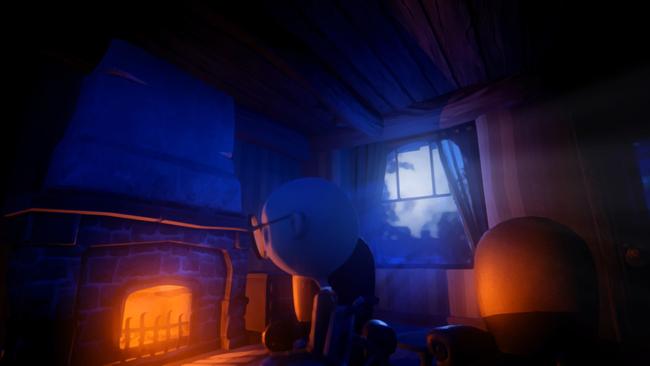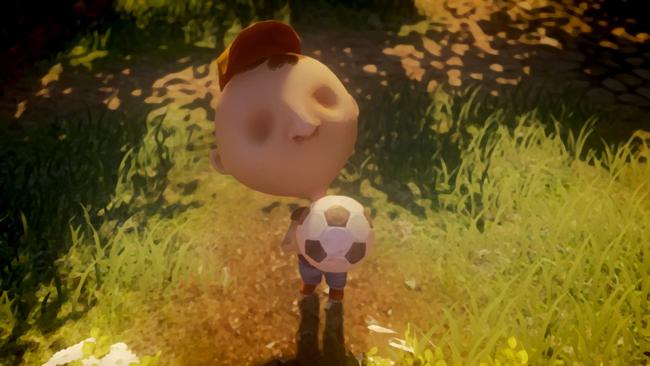Last Day of June Review
How do you deal with tragedy? If you had a chance to change the past to prevent a tragedy, would you do it? Ovosonico's narrative game Last Day of June tackles these tough questions, but how well does this developer handle what is a touchy subject for many? The answer is 'quite well', although the actual gameplay could have used just a bit more polish to ensure that the story's powerful plot could completely shine through.

Last Day of June is largely a narrative adventure, conveyed without any actual dialogue and in a striking (if somewhat unsettling due to the lack of eyes) art style. Without getting into too many details to avoid spoilers, it's a tale about loss and features a Butterfly Effect-like plot to help prevent that loss. The story is an emotional affair, with the lack of exposition and spoken lines making the characters' actions even more impactful. Being a relatively short game, it's well worth experiencing Last Day of June for its plot. While I don't think it's an especially unique narrative, and I was able to see where the plot was going to end, I still found it a well-executed story that is worth playing through.
That said, Last Day of June isn't a visual novel or a "walking simulator"— instead, this is an adventure title. In an attempt to prevent a certain tragic event from happening, you'll control several characters and manipulate their days in order to avert the accident. There are a few choices to choose for each character to end their day with, and getting them to said ending point involves resolving each character's situation. In Last Day of June, the kid choosing to play with the dog or with a kite can have lasting consequences on not only the kid's day but everyone's day. As more character days are unlocked, you'll have to juggle their activities to prevent tragedy.
As you explore the town with the characters, you'll also be able to unlock some of their memories. These memories dabble in the other characters' stories of loss, so it's worth trying to seek them out. Gathering all these memories is not required, but they are only collectible in Last Day of June. They certainly help to flesh out the other denizens of the small town in a game that's not exactly about them and without spoken dialogue, and it's helpful that you don't have to seek them out to complete the game.

Puzzles require some thought but never get to the point of being infuriating, and I say this as someone generally bad at figuring out video game puzzles. Things get more complicated as more characters are introduced, but that also introduces the most cumbersome part of Last Day of June—you can't easily switch between characters and change their days. To switch to another character, you have to end the day of the character you're currently playing with, watch the 'end of day' cutscene that lets you know if you successfully changed fate (since you're switching characters, that means a failure cutscene), switch over to the next character, and then watch part of their 'start of day' cutscene. It can definitely make things slower than they should be, and it feels like there should have been a better way to streamline one of the game's defining mechanics.
It also feels a bit repetitive at times, although that's largely a side-effect of the story-telling and gameplay style. Since you're trying to manipulate everyone's day to make sure the accident doesn't happen, you'll be replaying certain segments multiple times. Coupled with the lack of ease of switching characters, this can get a bit tiring at times, even if it justifies going back to collect memories. But at the same time, the game's short playtime helps minimize the frustration involving this, as by the time the switching and repetition start to get to grating, you're launched into the endgame.
To anyone that enjoys narrative games, Last Day of June is worth an afternoon playthrough. It's not perfect and those looking for more substantial gameplay may not be impressed, but those that can put up with a few gameplay hiccups will have an emotional story to work through.